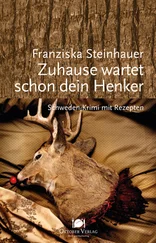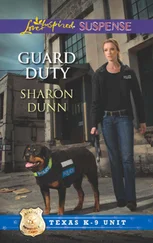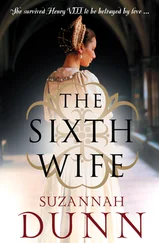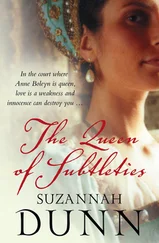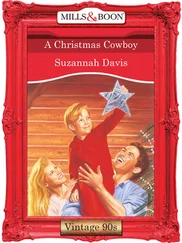Slipping over the mattress, I try to keep the duvet level, to avoid any pull on Christie. As soon as I am clear, I pause to listen hard for him, for his silence. In two minutes’ time, I will be back here and turning back into my own sleep, gathering up the remainder of my sleep to see me through to morning. I do not even bother with my dressing gown. How odd that we close our door although there is no one else in the house to keep us from, to keep from us. The opening door cracks into the hush of our room. But still nothing from Christie. I cannot see his face, only the top of his head, his hair: he is hunched into the duvet. Out there in the hallway the moonshine is pooled on the top few stairs. Pulling hard on the airing cupboard door, I tense for the snap of the plastic nub from its socket in the frame. When I was a child, my parents had special uses for the airing cupboard: a treasure trove for our birthday and Christmas presents, and a nest for the incubation of our slightly mushy Easter eggs. A winter holiday home, too, for my tortoise; the place where, every year, very slowly, he died, sort of, then sort of came alive again.
Nowadays I have friends who are diligent about bulbs: they plant bulbs in bowls, plant the bowls in their airing cupboards, and then they wait, all winter. But I am suspicious of shoots, stiff and pallid; they do not seem natural, somehow, not in an airing cupboard. My own warm shelves, in front of me, are slopped with underwear: straps, frills, bows, mostly washing powder white, nothing flash, because when I was young enough for experiments with underwear, I was too poor, and then, later, when I had money, I had lost my nerve, I had grown up. And I have never caught up: underwear remains a language that I do not speak well, in which I am untidy and tight-lipped. I get by, with a rather teen-bra look.
The blankets are on the top shelf, so my hands flutter over the underwear and then scale several shelves of towels. Warm, even smelling warm, these towels have a very thin crust, they are slightly dried and hardened from laundering. They came in batches as house-warming presents from relatives, who, I suspect, had asked the advice of my parents; and here they are, in the centre of my house, still warm, still warming. When they came, I took my old towels to a charity shop. My old towels had been very old. But then these new towels began to unnerve me. They had come in kindness, a kind of kindness, because my family knew that I had always had to make do, but I worried that they were a conspiracy to turn me normal, to turn my head and make me houseproud. I remember my dad saying, All I want is to see you married . My mum is the only person whom I know to use the word slattern . Once, she referred to a local girl who had lived with and then left her boyfriend as soiled goods . My bed linen is my own because my relatives were unsure whether they should buy anything for the bed of two unmarried people. I was happy to buy my own: I caught up on bed linen in a big way, in my belief that bed linen should be linen . No cotton/polyester mixes. Why was I so serious about this, when my underwear remains the equivalent of flannelette fitted sheets?
The blankets drop one by one from the shelf, their folds wriggling from my arms. I strain behind my bundle to kick the cupboard door shut, then waddle to the stairs. The towels, fattening and breathing their fragrance into my airing cupboard, those house-warming towels makes me think of my sister. Belinda was married, but I do not know what she is now: single, divorced, separated, or simply sulking? She was married for nine months and has now been back home for six. Like a character from a book or a film, a character from the Deep South. Except that she wears Snoopy slippers, and has never lived anywhere but Hatfield. I was told that the marriage didn’t work , as if it was a dud among the many electrical appliances that had come gift-wrapped to the wedding reception. Mum says that Belinda doesn’t-want-to-talk-about-it . If I was Belinda, I would not even want to think about it: Freddie was her first boyfriend, when she was fourteen, and she stuck with him for twelve years. He was a nice boy, he must have seemed like a good idea at the time, but for twelve years?
Mum had only one comment for me: Belinda and Freddie had been more like brother and sister – she did not say than lovers – and then, when they married, he wasn’t quite what she had expected . Which could mean anything. They had not lived together before they married, and their relationship was the only one that I have ever known for which going out together was an accurate description. Whenever they saw each other, they went to the cinema or to restaurants, or sometimes further afield on holidays. I was around, on and off, for seven of their twelve years, and I am not quite sure that I ever saw them together without their coats; I am not too sure that they ever saw each other without their coats. They were forever turning through the front door, a huge and unbalanced version of one of those weather vanes which shows a man or a woman for rain or shine. In their case, always rain: from my room at the top of the stairs I would sense how the hallway flickered with their red-tipped noses and shook with the clapping of cold from their mitts. Belinda has always been the same: my little sister, she was older than her years by my two; but whenever she moved forward with me (finding a boyfriend, gaining an allowance, drinking Snowballs), she stuck. With make-up, even: she began young and daring, choosing eyeshadows which reminded me of the underside of leaves, but then she stuck with them. Her eyelids are still like leaves switched and splayed in the wind when she settles for the evening with a TV dinner in her lap.
Sometimes I have to go home for some reason or other, and when I was last there, I took a detour from the bathroom to peep into her bedroom. I was shocked by what I saw: gonks , a colony on her windowsill. I was shocked, even, that I knew what they were, that I knew the name for them. Listening for her heavy tread on the stairs, I crossed the room in a few quick paces and peered down onto their forced smiles, the smiles that had been forced into the plastic to make their faces. I did not fondle their hair, which was nylon, lurid, and frayed, although I was fairly sure that part of the point of gonks was to fondle their hair. I had had a gonk or two when I was a child, when everyone had had a few, so I knew that the main point of them was to bring luck. During exams, our gonks stood on guard by the obsolete inkwells of our old desks. But in exams they failed Belinda badly, her teachers failed her badly, her reports were jagged with Es and Fs. Not that this caused trouble for her, because Mum and Dad would tell her that what mattered was happiness. Now Belinda’s gonks have another use: they occupy the void on the sill which, for twelve years, had displayed the faces of the happy couple in frames. The grinning gonks manage fair impressions of the two missing faces and even of Belinda’s yellow hair which has sometimes been only faintly real.
Because she had had Freddie for twelve years, she seemed to have lost track of her childhood friends, and made no new ones. A neighbour’s child played the role of bridesmaid. Because Dad had died, Belinda arranged for Freddie’s father to give her away, which made less than no sense. I wonder if he gave her back, I wonder if he drove her home when the marriage was over, because how else did she cross town with her belongings? She and Freddie had no car, and Mum has never learned to drive. Back home, there is a portable television in her bedroom; this is the extent of her independence, now. Which she never seems to use. Because Mum likes her company. Belinda likes home comforts and Mum likes company: this is how the situation works. The only change in their relationship happened ten years ago, when Belinda started work: the allowance switched, no longer paid by Mum and Dad to Belinda but by Belinda to Mum and Dad. Belinda has had the same job for ten years: receptionist at the local leisure centre. Leisure is ironic: even the entrance hall is hard work, with the machine-gun fire of the turnstiles, the echoes of pot shots from the squash courts, and the chemical warfare of chlorine. Presumably she earns very little, but apart from Mum’s allowance to cover food and bills, she has no expenses: no house, no car. So, she has always had money for the pictures, for pizzas, for presents, for exactly the expenses which I have always found a strain. Sufficient for holidays, even: her talk was always of booking holidays, my talk has always been of saving for holidays.
Читать дальше


